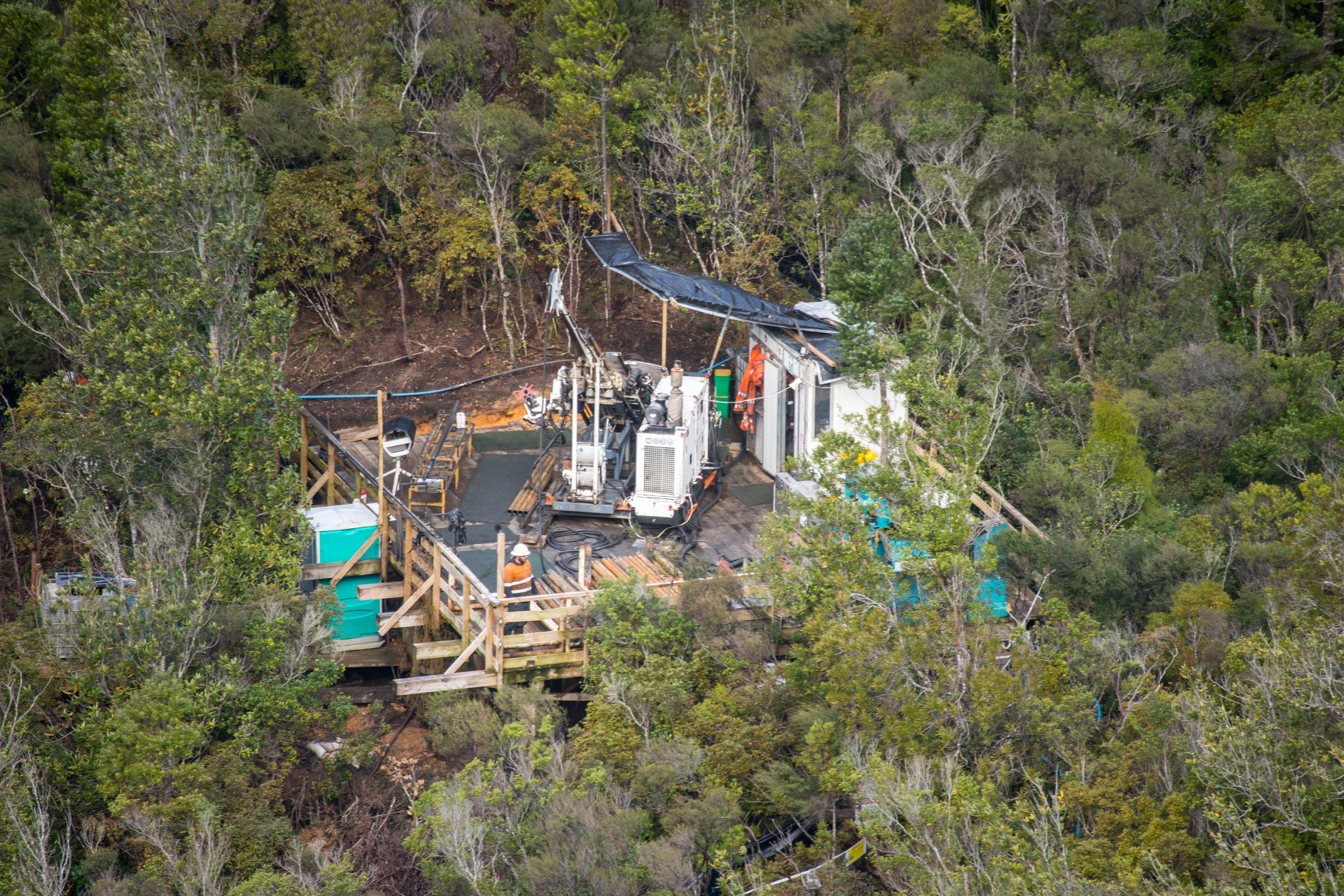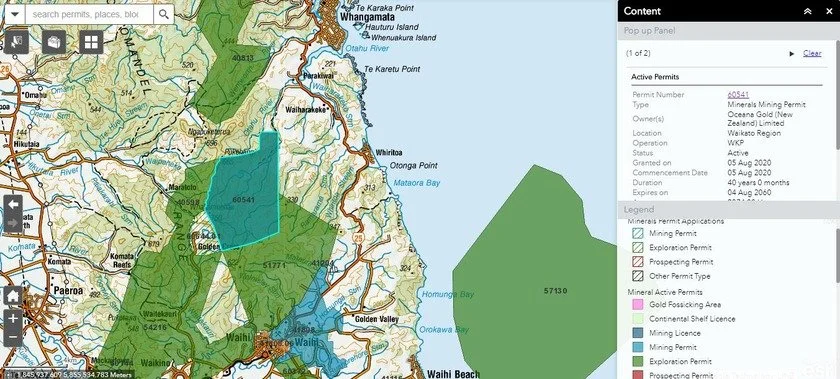
The Situation
Kiwis love their country. Aotearoa is beautiful when we look after it. What you may not know is that a giant foreign gold mining company is applying for resource consent for a massive underground gold-mine at Wharekirauponga, near Whangamata in the amazing Coromandel.
Oceana has been permitted by DOC to establish drill sites all over Wharekirauponga Forest Park.
Oceana Gold already owns the Martha Mine open pit in Waihi and its associated tunnelling, as well as a nearby processing plant and toxic waste dams. But there’s not much gold left in the Martha pit, and Oceana has been actively exploring other areas in the Hauraki/Coromandel. They are currently pinning their hopes on a DOC-administered native rainforest, which is richly biodiverse. It’s one of the few remaining habitats for Archey’s frog, pepeketua, which is critically endangered and found in no other country on Earth.
Oceana’s plans were laid out in a report released in June 2021, in which the company proposes the Waihi North Project. This includes an underground mine beneath the forest and a 6.8 km underground conveyor belt to carry the unprocessed rock to Waihi for processing and dumping in a toxic waste dam.
Drilling rig at Wharekirauponga – Photo by Geoff Reid
Schedule 4 of the Crown Minerals Act prohibit gold-mining on DOC land north of the Kopu-Hikuai line, but just south of the line and for no good reason, Oceana has been permitted by Hauraki District Council to establish drill sites all over Wharekirauponga Forest Park. They say they can extract over 1 million ounces of gold (current value, about $1800 per oz) from their proposed mine.
Oceana is applying for resource consents this year. They know that pressure is mounting for a gold-mining ban on all DOC land, especially on the Coromandel Peninsula.
This Government promised it would ban new mines on DOC land but has failed to act on this promise.
Oceana knows there will never be a better chance to get the required statutory consents before a public outcry stops the project, and particularly while we’re all distracted by Covid.
Why would we want a huge mine under a very special part of the Hauraki / Coromandel, with potential for contamination of watercourses, local extinction of a taonga species, and transforming a rainforest into an industrial zone? Holidaymakers, and local people do not want a heavy industry on their doorstep. Kiwis do not want further destruction of our beautiful motu. The only people who want this mine are the shareholders of OceanaGold.
It is important to understand the impact that mining can have on our environment and communities. OceanaGold, a multinational mining company, has a track record of causing harm to both.
They’ve been criticized for shoddy environmental practices, which have included pollution of waterways, destruction of habitats, and the use of cyanide in the mining process. These practices not only have devastating effects on ecosystems, but also put the health and well-being of local communities at risk.
The company has also been accused of human rights abuses, including forced evictions, intimidation of community members, and violence against activists. In 2016, the company was forced to pay compensation to El Salvador for losses incurred as a result of its mining activities, after the country imposed a ban on metallic mining to protect its water resources.
Furthermore, OceanaGold has a poor track record of engaging with local communities and respecting their rights. The company has been accused of failing to consult with indigenous communities, and of ignoring the concerns of local people who are impacted by its operations.
Given these concerns, it is clear that OceanaGold's mining activities are not in the best interests of our planet or its inhabitants. In short, OceanaGold suck.



